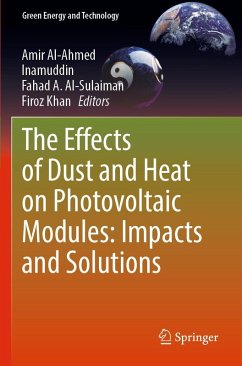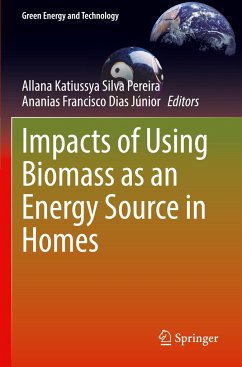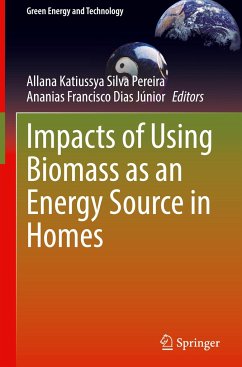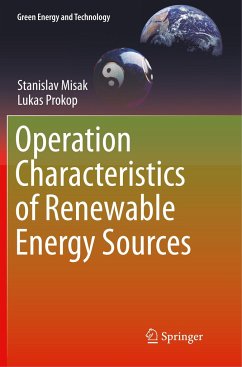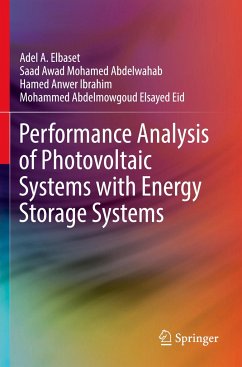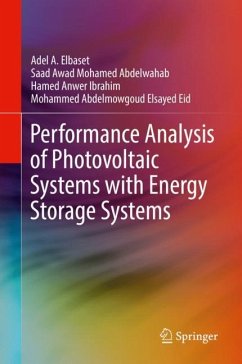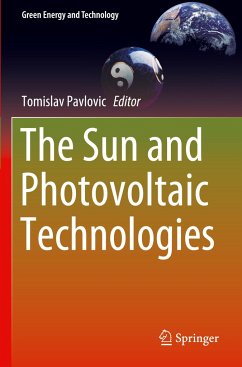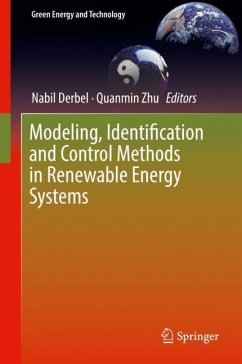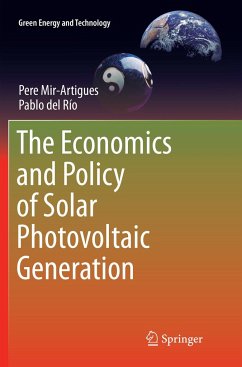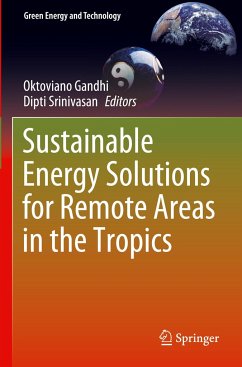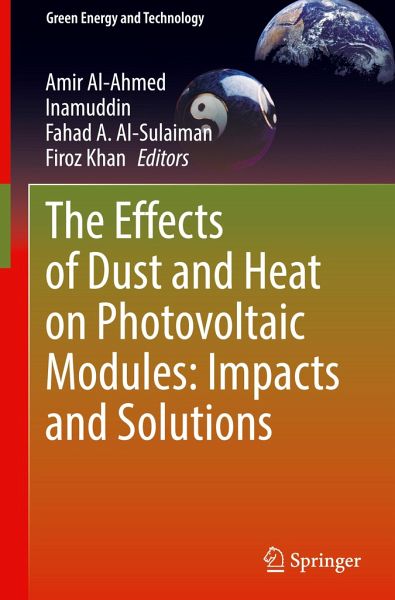
The Effects of Dust and Heat on Photovoltaic Modules: Impacts and Solutions

PAYBACK Punkte
53 °P sammeln!
This book discusses how to reduce the impact of dust and heat on photovoltaic systems. It presents the problems caused by both dust accumulation and heat on PV systems, as well as the solutions, in a collected piece of literature.The Effects of Dust and Heat on Photovoltaic Modules: Impacts and Solutions begins by discussing the properties of dust accumulation on PV modules. It then presents several solutions to this, such as hydrophobic coatings and surface texturing. The second half of the book is used to discuss the effects of heat on silicon PV modules, as well as various cooling approache...
This book discusses how to reduce the impact of dust and heat on photovoltaic systems. It presents the problems caused by both dust accumulation and heat on PV systems, as well as the solutions, in a collected piece of literature.
The Effects of Dust and Heat on Photovoltaic Modules: Impacts and Solutions begins by discussing the properties of dust accumulation on PV modules. It then presents several solutions to this, such as hydrophobic coatings and surface texturing. The second half of the book is used to discuss the effects of heat on silicon PV modules, as well as various cooling approaches. These include water cooling and carbon-based materials.
Due to the prevalence of PV systems in renewable energy, this book will be of interest to numerous students, researchers and practitioners.
The Effects of Dust and Heat on Photovoltaic Modules: Impacts and Solutions begins by discussing the properties of dust accumulation on PV modules. It then presents several solutions to this, such as hydrophobic coatings and surface texturing. The second half of the book is used to discuss the effects of heat on silicon PV modules, as well as various cooling approaches. These include water cooling and carbon-based materials.
Due to the prevalence of PV systems in renewable energy, this book will be of interest to numerous students, researchers and practitioners.





